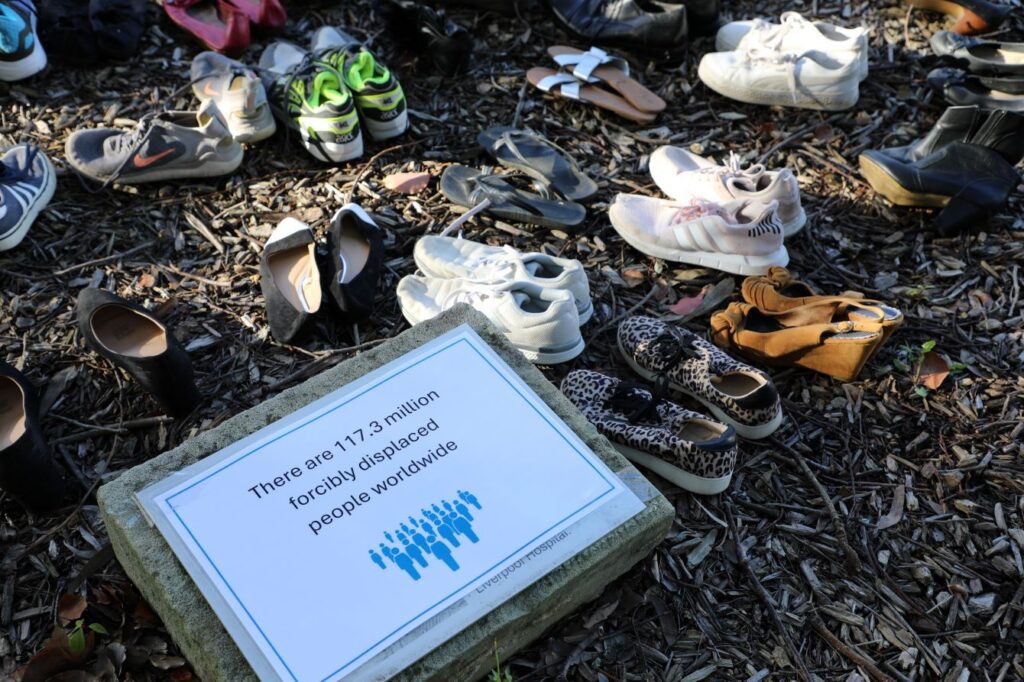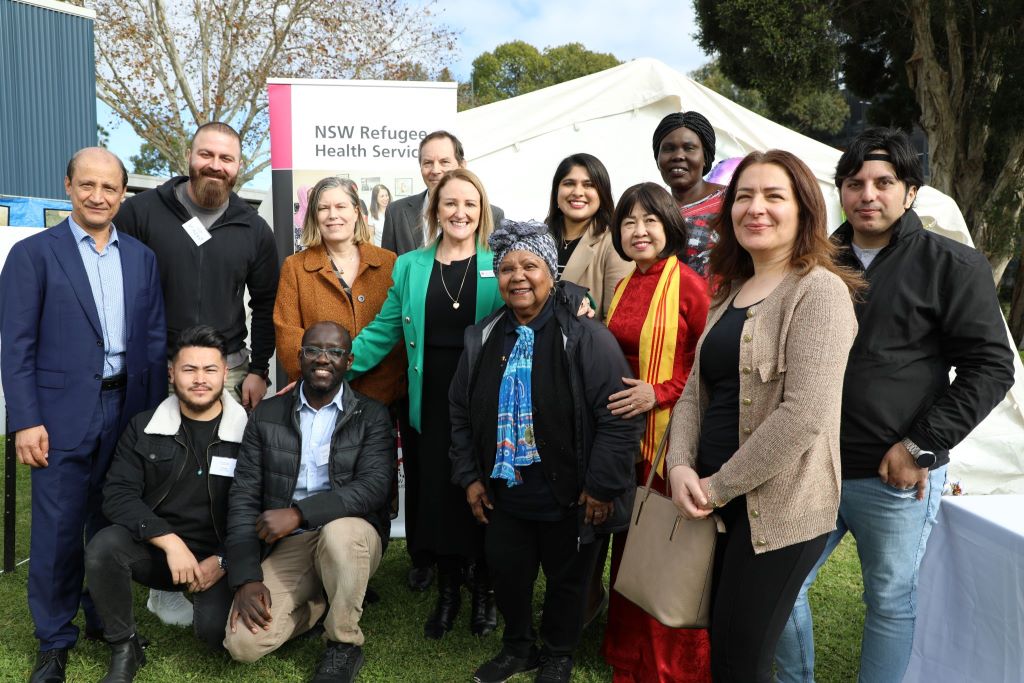
NSW Refugee Health Service (RHS) is marking 25 years by giving health workers a unique look at what it’s like to be a refugee with the “refugee camp in my neighbourhood’’ experience at Liverpool Hospital.
This is a simulated refugee camp for health staff, run by guides with lived experience leading people through the refugee journey, from the escape over a border, arriving at a refugee camp, and through the asylum or resettlement process in Australia.
The tours which are run by guides who have a refugee background, lead people through the refugee journey including escape across a border, arriving at a refugee camp, and the resettlement process in Australia.
Yesterday, NSW chief health officer Dr Kerry Chant attended a Refugee Week (June 16-22) event at the simulated refugee camp, while Member for Liverpool Charishma Kaliyanda delivered an address representing the minister for health – pictured below.
Cathy Preston-Thomas, acting director of RHS, said the experience of the Liverpool Hospital camp aims to educate health staff on the challenges faced by many refugees as they settle here and navigate the health care system.
“More than 2,500 refugees settle in South Western Sydney every year,” Ms Preston-Thomas said.
“We have individuals of all different backgrounds living and working here, and by learning from and supporting one another, we can refine and enhance our services for the benefit of refugees across the state.
“For 25 years the NSW Refugee Health Service has not only provided care directly to people from a refugee background, it has worked with health workers in hospitals and services to help them understand and deliver high quality, individualised, and trauma informed care.
“The Refugee Camp in My Neighbourhood experience is an excellent opportunity for health workers to gain insights into the impact of the refugee experience.”

Recently arrived refugees and asylum seekers often face a multitude of complex challenges.
These can include physical consequences of torture or armed conflict, psychological and adjustment disorders such as anxiety, and limited knowledge of the health care system.
RHS provides a range of clinical services and medical assessments for this community and over the last 10 years has supported more than 20,000 refugees and asylum seekers.
The state-wide service also delivers community information sessions on topics including oral health, nutrition, and chronic diseases.
